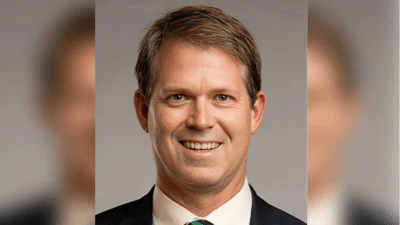While many health care workers are eager to receive the new COVID-19 vaccine, some are apprehensive about how quickly it was developed. | Shutterstock
While many health care workers are eager to receive the new COVID-19 vaccine, some are apprehensive about how quickly it was developed. | Shutterstock
A new COVID-19 vaccination has been produced by Pfizer and Moderna, and the Pfizer version is currently available to health care workers.
While many health care workers are optimistic about the vaccination after nine months of battling on the front lines, some remain skeptical and are unwilling to take a chance on a vaccine that was produced at such a rapid pace.
“I will decline to take the vaccine,” one Henry Ford Health System nurse told Bridge Michigan. She asked to remain anonymous. “It might cure COVID for now, but what are the side effects down the line? It was produced so fast. If it was out a little bit longer, and more research was done on it, I’d probably take the vaccine, just like the flu shot or any other vaccine. But because it came out so fast, especially under the administration that we have, it’s just not something that I trust.”
The Pfizer COVID-19 vaccination was not developed as part of the Trump Administration's "Operation Warp Speed."
Many health care workers have said that they haven't felt pressure from employers, and there isn't a current mandate to get the vaccination.
“It's been voiced in several different meetings with upper management, with the CEOs and the president. They're fully aware that nursing staff feels as though they don't want to be somebody's science experiment or a guinea pig,” the anonymous Henry Ford nurse said, according to Bridge Michigan.
In a recent statement, a Henry Ford spokesperson says the system is “very mindful of the concerns of people of color about vaccines” and that they purposefully included them in its trial of Moderna’s COVID-19 vaccine.
“While we know the long-term efficacy data is not yet available for COVID-19 vaccines, we are confident in the FDA’s approval process and are dedicated to safety, quality and high reliability,” the spokesperson told Bridge Michigan, adding that resources are being provided to help staff make informed decisions.
A Sparrow Hospital nurse and board member of the Michigan Nurses Association, Katie Pontifex, said that her decision about taking the vaccination has fluctuated over time.
“In the beginning, it felt very rushed. I think that's a very knee-jerk reaction that is very natural to have, in that it just felt like we were rushing into this," Pontifex told Bridge Michigan. “I (feel) much better about it. I feel very safe taking this vaccine. And I will be one of the first to sign up to get it."
Pontifex's initial concerns aren't unheard of, as a hospital north of Chicago temporarily halted the disbursement of vaccinations to its staff after four employees experienced tingling and elevated heart rate after receiving the vaccine, according to Fox News.
“Concerns among health care providers is a risk for overall vaccine confidence,” a CDC “Vaccinate with Confidence” campaign briefing said. “Health care providers are the most trusted source for health information.”
According to an internal survey at Sparrow, most health care workers are onboard with receiving the vaccine, with one nurse in particular who says that he will get the vaccination to lead by example and make sure that others will feel safe doing the same.
“I'm getting vaccinated for myself, my neighbor, my patients, my wife, my mom,” Eric Kumor told Bridge Michigan. “It's like I'm getting vaccinated for everybody.”



 Alerts Sign-up
Alerts Sign-up